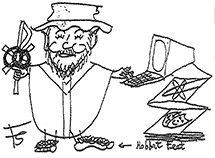Einstein said: “those individuals to whom we owe the greatest achievements of science were all of them imbued with a truly religious conviction that this universe of ours is something perfect and susceptible to the rational striving for knowledge.”
(Einstein, Ideas and Opinions. London, Souvenir, 2005, p54)
On this basis Einstein rejected the implications of some of his own work, which was early quantum theory, which depended on probabilities rather than certainties. In this respect Einstein as a believer is very close to many readers who require certainties, without chance of error.
Strangely, Einstein, full of wonder at the universe he discovered, admitted that there was a further stage, of unknowing:
“Try and penetrate with our limited means the secrets of nature and you will find that, behind all the discernible concatenations, there remains something subtle, intangible and inexplicable. Veneration for this force beyond anything which we can comprehend is my religion. To that extent, I am, in point of fact, religious.” (Max Jammer, Einstein and Religion, Princeton, P. Univ. Press, 199
The fact is, that while Einstein’s relativity, spacetime, and gravity revelations have opened new information about necessary laws of nature, they have also opened the reality that at both the quantum (micro) and Cosmic (macro) level chance and indeterminacy are also necessary.
The difference with Einstein’ belief is: where the faith believer holds that that Being is personal, and that consciousness and personal responsiveness as found in humanity (and even the animal kingdom) is a reflection of similar personal responsiveness in the Being who is responsible for it all. Einstein would not agree with that.
A necessary feature of Christian faith is therefore the trusting embrace of uncertainty, or doubt, in the belief that God, in person, has gone into the greatest darkness we can experience, and remains as the light which gives us hope and love.
“The darkness and light in Thee are both alike” Psalm 139

